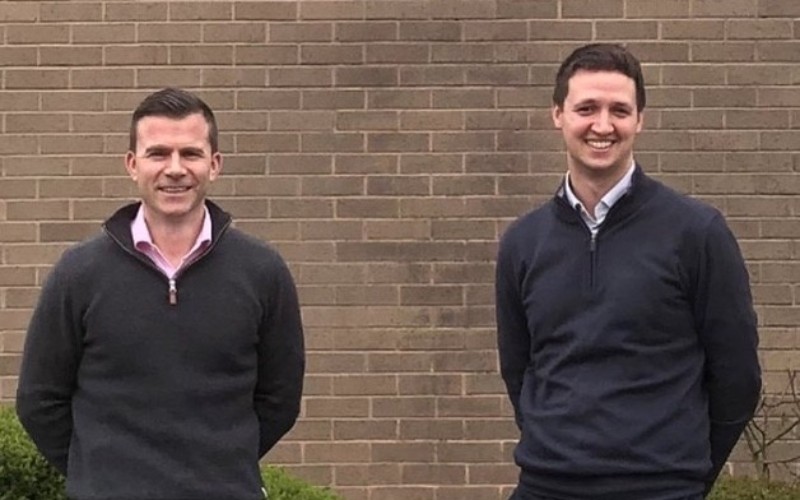North West finance firm Seneca Partners is celebrating a significant milestone after investing £100m in growth capital since it launched in 2010.
The Haydock-based company specialises in supporting ambitious SMEs grow and has invested in more than 50 businesses in the last decade.
Earlier this month the company achieved a 4.2x return in its investment in Lancashire digital and communications business Mission Labs after it was acquired by Gamma Communications in a deal worth a potential £46m.
John Davies, investment director at Seneca Partners, said investing £100m was a ‘hugely significant milestone’ but predicted the ‘best was yet to come’.
He said: “We have invested in everything from consumer businesses such as eCommerce platforms and coffee shop franchise operators, traditional manufacturing businesses, highly innovative technology businesses and we also remain active BioTech and HealthTech investors.
“More recently, with the UK and particularly the North West, emerging as something of a digital powerhouse, deal flow in technology driven businesses has been accelerated.”
https://businesscloud.co.uk/tech-start-up-behind-1tn-of-construction-projects-backed-by-gv/
Companies that Seneca have invested in include AIM-quoted BioTech businesses OptiBiotix and SkinBioTherapeutics and car data platform Wejo.
Davies added: “Mission Labs has been a great story for us. We enjoy working with regional businesses and Mission Labs has been a roaring success, not only for our investors but for the local tech sector as a whole.
“We have also had success in the eCommerce space, with a 5x exit from our investment into Yorkshire-based Gear4Music, and we continue to be big supporters of women’s fashion platform SilkFred, who we are excited about heading into 2021.”
Seneca employs over 40 people and has made a total of 22 exits with an average multiple of 1.75x and returned in excess of £32m to investors. They currently manage a portfolio of 30+ businesses on behalf of their investors.
https://businesscloud.co.uk/four-major-trade-and-investment-hubs-created-across-uk/
Matt Currie, investment manager and growth investor at Seneca Partners, said: “Seneca have debt and advisory capabilities, which sit alongside our tax-efficient equity investment offerings aimed at giving young, innovative SMEs the support they need to grow and to thrive. We work with high quality management teams within these businesses to deliver results for our investors.
“Cheque sizes vary from around £500k to circa £3m. We try not to stick to any hard and fast rules here as we prefer the flexibility to structure deals that work for both us as investors, but also the businesses and management teams.
“They may not want or need to take £2m or £3m of funding on day one, so we can split the funding into two or three tranches if that works better. We often support our existing portfolio businesses by reinvesting in the future investment rounds as the business continues to progress.”
Currie described Seneca as ‘sector agnostic’ but said EIS and VCT investors have traditionally been attracted to BioTech deals.
“We prefer to invest at the point where the product or offering has been proven,” said Currie. “Some refer to this as ‘scale up’ or ‘Series A’ funding round, but essentially we like to see that a management team are capable of building a product, attracting customers and proving the model before we put our capital at risk.
“Naturally that may mean that we invest at a slightly higher value than earlier stage investors, so it’s all about getting that risk-reward dynamic right.”
Seneca specialises in Enterprise Investment Scheme (EIS) and VCTs (Venture Capital Trusts). Explaining how they work, Davies said: “These are tax efficient ways for individuals to invest and support the SME community. The rules dictate that these funds have to be invested and deployed into young, innovative businesses.
“These are naturally risky and some will undoubtedly fail, however the EIS and VCT schemes that have been around in this country for a number of years now enable investors to reduce or defer a tax bill that they would otherwise have had to pay, in exchange for providing much-needed capital into these exciting, high-growth businesses.
“Both VCTs and EIS give investors the opportunity to reduce their income tax bill by 30 per cent of their investment amount. EIS also offers investors additional benefits around ability to defer capital gains tax bills, whilst VCTs typically look to pay dividends, which are tax-free.”
Currie said there were no shortage of investment opportunities because of COVID-19.
“There are plenty of opportunities out there, arguably more so than in previous years,” he said. “The rate of change over the previous year has created significant opportunities and there are no shortage of entrepreneurs looking to tap into those.
“The challenging bit is forming a view on what businesses may look like in a post-COVID world. All have been impacted by COVID in some way, so the last 12 months and the recent trajectory these businesses have been on may not be a great indicator of the next 12 months.
“The world is more accustomed to change and upheaval than it ever has been before. Businesses (and consumers as well) will become leaner and more efficient – never before have they been forced to completely reassess the way they operate, as they have throughout COVID.
“People and businesses have been handed a great excuse to restructure supplier agreements or stop spending altogether. They simply won’t continue to buy your product if it isn’t adding value or seen as an absolute necessity.”


